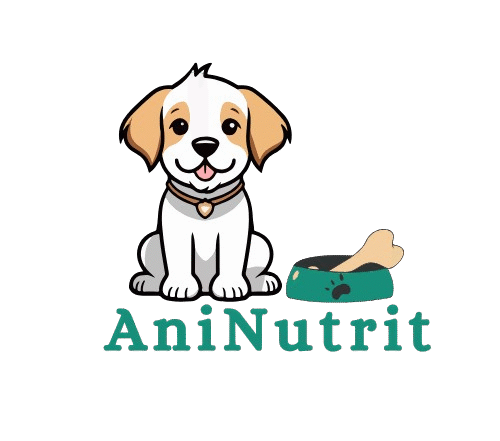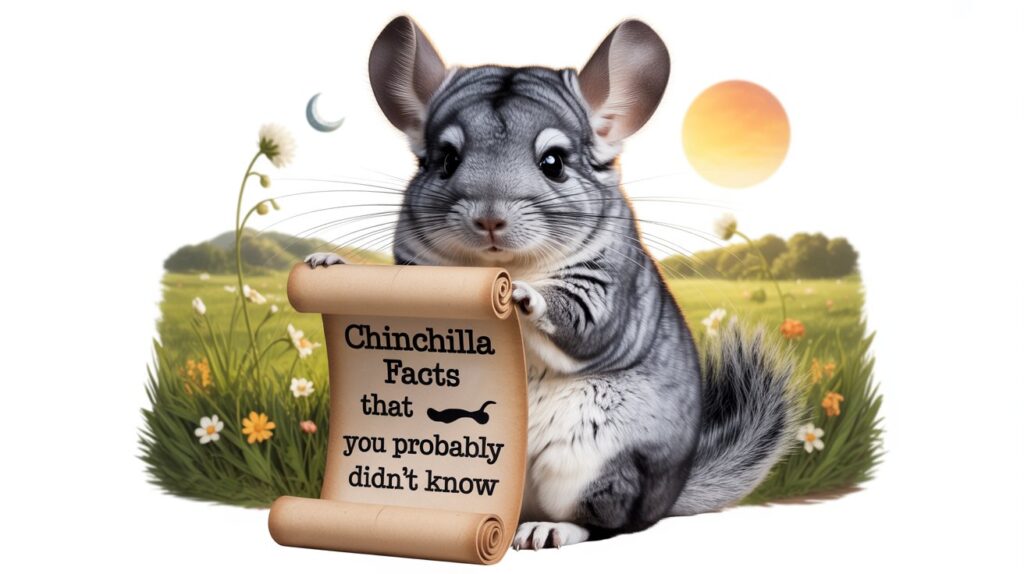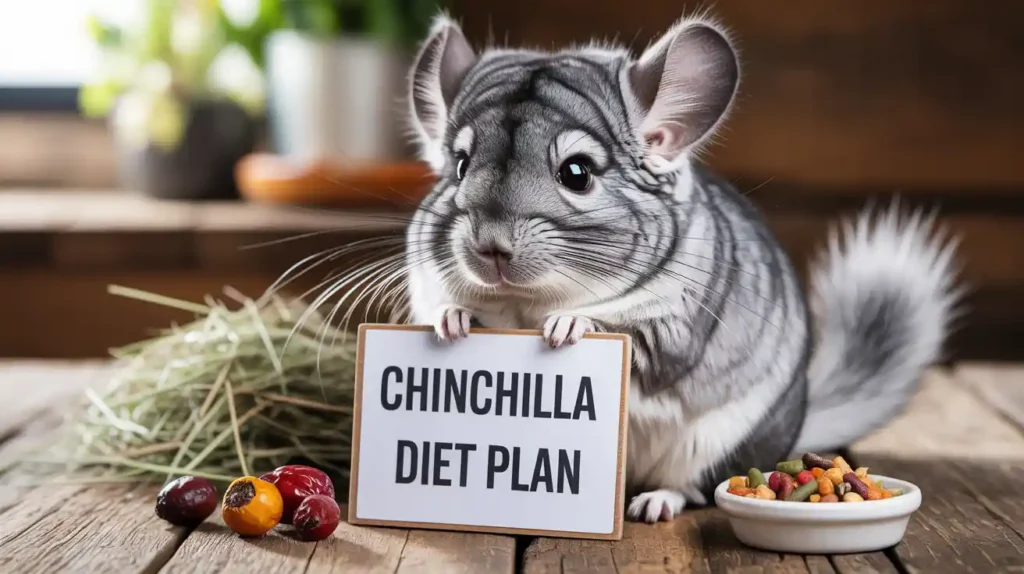When it comes to keeping your chinchilla happy and healthy, food is definitely one of the main care aspects. Chinchillas have very sensitive stomachs and a wrong diet may lead to more serious health problems. That is why you should carefully read the naturally chinchilla diet food list and adopt a safe and balanced diet.
This guide covers the chinchilla diet list, what’s safe and what’s not, the role of hay and pellets, what to watch out for and some more good info. Finally by the end you ‘ll be the expert on what your pet should and shouldn’t eat.
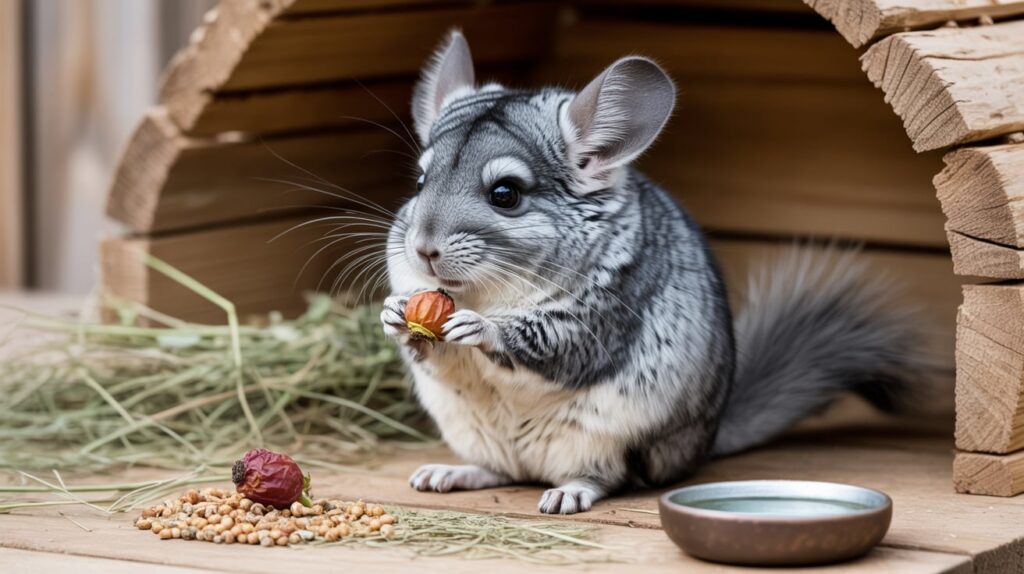
Table of Contents
Understanding the Chinchilla Natural Diet
In the wild chinchillas are originally from the Andes mountains of South America. They’re diet is fairly basic. They mostly eat grasses and plants and shrubs high in fiber. The reason why they ‘re not able to digest sugary / fatty or watery foods is because their digestive system was designed to go into roughage.
When we take care of chinchillas as pets we have to follow this natural diet of chinchillas as closely as possible. The closer to their natural diet our chinchillas will get the healthier and longer they’ll live.
Chinchilla Feeding Guide: The Basics
Because a chinchilla diet is basically just some main foods:
- Hay – Unlimited fresh hay every day.
- Pellets – Small amounts of chinchilla-specific pellets daily.
- Water – Clean, fresh water always available.
- Snacks/Treats – Only in small amounts, and only safe options.
This natural chinchilla feeding guide will keep your pet ’s digestive system working well and prevent digestive problems.
Hay and Pellets for Chinchillas
The 2′ most important foods that chinchillas eat are hay and pellets. Let’s look at them in more detail.
Hay
Hay is the only food that the long tailed chinchilla will eat. It ‘s a source of fiber which helps with the digestion and also keeps the teeth healthy Chinchilla teeth never grow, they only grow when they are chewed on hay.
Best types of hay for chinchillas:
- Timothy hay
- Meadow hay
- Orchard grass hay
- Botanical hay
Do not feed alfalfa hay to adult chinchillas as it is too high in calcium and protein. Young chinchillas under one year old can have small amounts of alfalfa hay but it should not be the main hay that they eat.
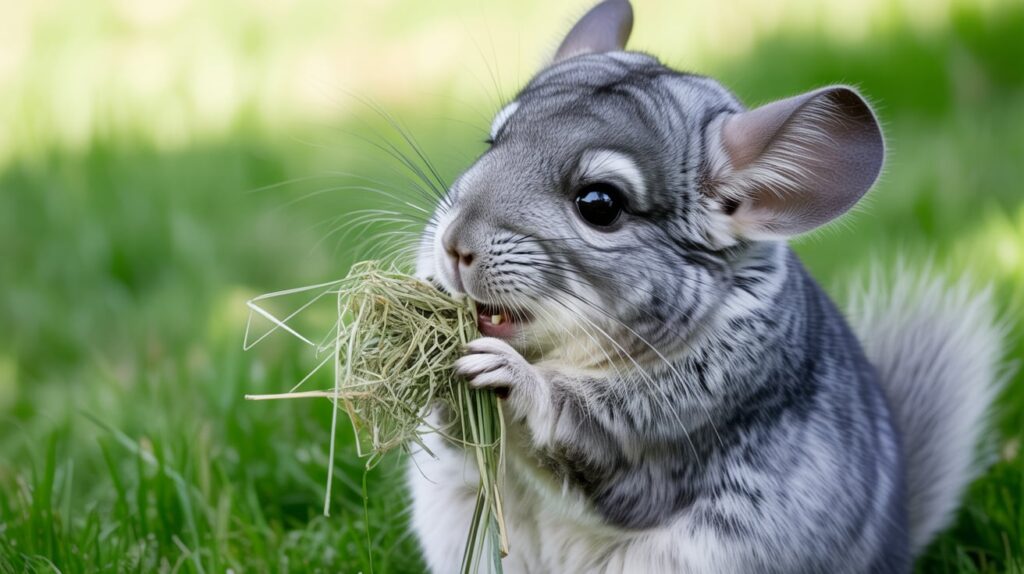
Pellets
Pellets are a concentrated food (specifically made for chinchillas) which give them more vitamins and minerals than hay could give and so on. Ensure you’re buying pellets that are plain and for chinchillas only.
Keep out colorful foods with seeds / dried fruit or nuts. They’re not good for your dog and can make her stomach hurt.
Recommended daily amount:
- About 1–2 tablespoons of pellets per day.
High Fiber Foods for Chinchillas
Chinchillas need a diet that’s almost entirely high in fiber foods. Fiber helps keep the gut moving and prevents stomach health issues such as bloating or impaction.
Examples of high-fiber foods for chinchillas:
- Grass hay (timothy, meadow, orchard)
- Dry herbs (rose hips, dandelion leaves, nettle in small amounts)
- Dried flowers that are safe for chinchillas (chamomile and hibiscus only as treats)
These must never replace hay, but they add variety to the chinchilla diet list.
Chinchilla Safe Snacks
Even though their diet is plain, chinchillas enjoy small treats. Safe snacks should be high in fiber and low in sugar. Always remember: treats are rare and small.
Chinchilla safe snacks include:
- A tiny piece of dried apple (no sugar added)
- A small piece of dried rosehip
- A dried goji berry (very rarely)
- A little bit of plain shredded wheat (no sugar no salt)
Snacks should not be fed every day. If you can give them once or twice a week. Snack should be something you enjoy with your chinchilla and not something they have to eat every day.
What Do Chinchillas Eat Daily?
A simple diet for chinchillas if that’s what you’re asking
- Morning and Evening: Unlimited hay should always be available.
- Once a Day: 1–2 tablespoons of chinchilla pellets.
- Always: Fresh water in a glass water bottle.
- Occasionally: A safe treat once or twice a week.
This routine makes a perfect recommended chinchilla diet plan.
Chinchilla Diet Chart
Here’s a quick chinchilla diet chart for easy reference:
| Food Type | Frequency | Notes |
| Hay | Unlimited | Timothy, meadow, orchard, or botanical hay. |
| Pellets | 1–2 tbsp daily | Only plain chinchilla pellets. Avoid colorful mixes. |
| Water | Unlimited | Fresh, clean water daily. |
| Vegetables | Rare, very small | Leafy greens like kale only occasionally. Avoid watery vegetables. |
| Fruits | Rare, tiny piece | Dried apple, raisin, or goji berry. Very small amount once a week. |
| Herbs/Flowers | Small amounts | Safe dried herbs or flowers as treats. |
| Unsafe Foods | Never | Nuts, seeds, chocolate, bread, dairy, citrus, or human snacks. |
This chart makes it easy to follow the recommended chinchilla diet plan without confusion.
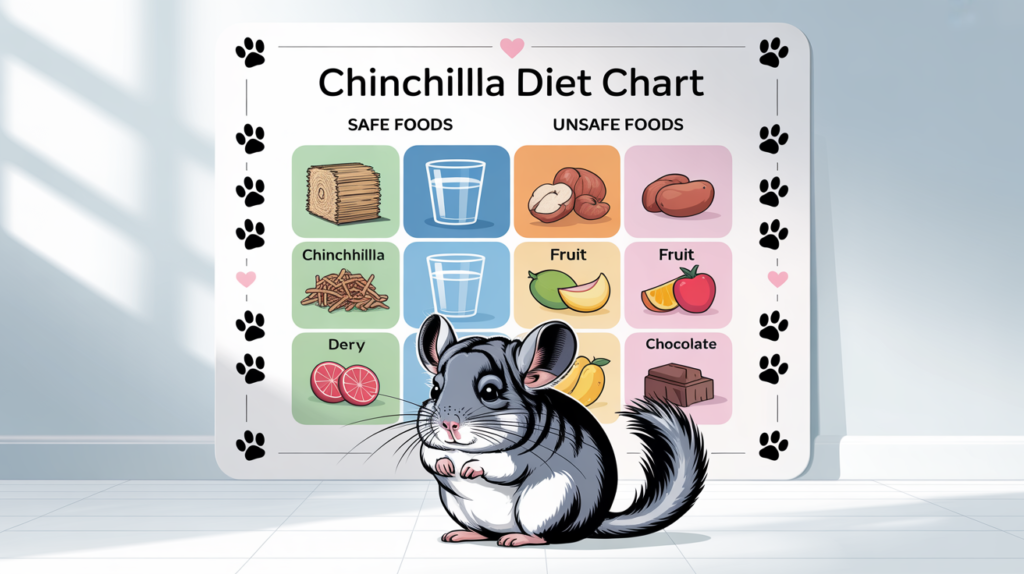
Foods to Avoid in the Chinchilla Diet
Because chinchilla ‘s have very small digestive systems. So many foods that we think are healthy for them are not.
Avoid these foods completely:
- Fresh fruit (too much sugar and water)
- Nuts and seeds (too fatty)
- Vegetables like lettuce, cucumber, celery (too watery)
- Grains, bread, pasta, crackers (not digestible)
- Dairy products (chinchillas are lactose intolerant)
- Chocolate, candy, or human junk food (toxic and dangerous)
If fed these foods may cause bloating diarrhea or even death. Always feed the natural diet for chinchillas.
Long-Tailed Chinchilla Diet vs. Short-Tailed
Most pet chinchillas are long tails, but these species eat very similar things in general. The long tail chinchilla diet is basically the same thing we’ve been talking about – hay pellets water and little safe treats.
The main difference is that wild chinchillas eat more wild plants / roots and bark than pet chinchillas. But for pet chinchillas the feeding guide above will be best.
Recommended Chinchilla Diet Plan
How to feed chinchillas recommended diet daily in 4 easy steps
- Morning: Check water bottle, fill up with fresh water. Give a tablespoon pellets.
- All Day: Provide hay round the clock Replace old hay with new hay.
- Evening: Another tablespoon of pellets (if you split the portion).
- Once or Twice a Week: Offer a small safe treat.
Also this diet is something they would naturally eat, and it also is healthy.
Extra Tips for a Healthy Chinchilla Diet
- Start foods slowly – A sudden change in food can cause stomach upset.
- Never overfeed treats – Chinchillas love snacks but too much can cause harm.
- Check teeth and weight – Their diet affects both.
- Always give fresh hay. Hainty or moldy hay should never be fed.
- Stick to routine – Chinchillas prefer to be fed on a regular schedule.
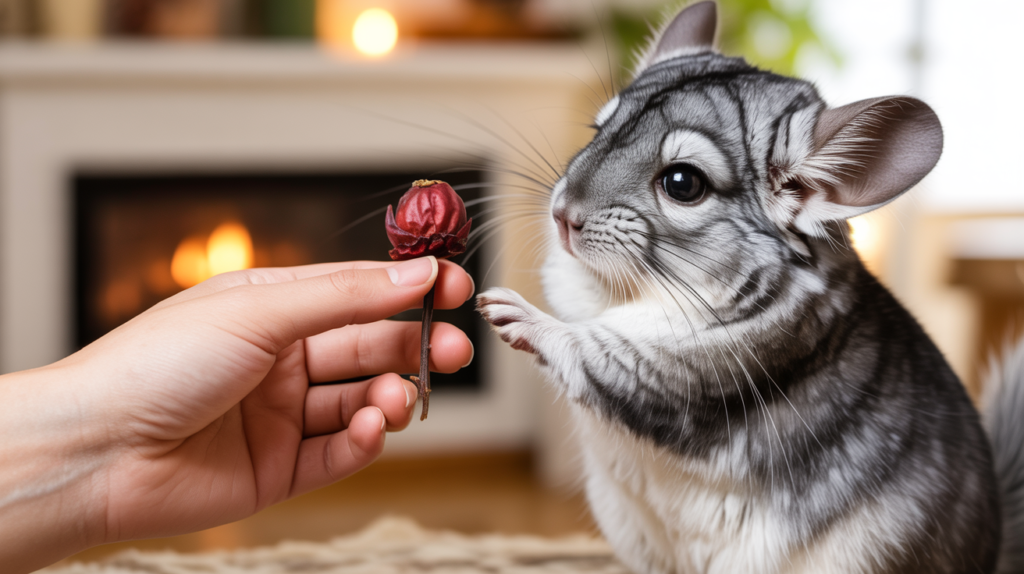
Conclusion
A chinchilla’s diet may seem straightforward but it is very important to have it right: note that the natural diet for chinchillas is mostly hay, pellets and water. Put out safe snacks in small amounts and avoid all unsafe foods.
When you follow the chinchilla feeding guide you’re putting your pet’s health and lifespan at risk. Read the chinchilla diet chart and the recommended chinchilla diet plan as your daily guide and your animal should thrive.
FAQs
Q1: Can chinchillas eat vegetables?
Yes but in very small amounts and not often. You could give him leafy greens like kale once in a while though but waters like cucumber or lettuce should be avoided.
Q2: Can chinchillas eat fruit?
Yes but only dried fruit ( no added sugar ), in very small quantities ( once a week or less ) because fresh fruit is too much water and sugar.
Q3: Can chinchillas eat nuts or seeds?
No. Nuts and seeds are just too fat for your body and can cause digestive issues as well as a risk of choking.
Q4: What is the best hay for chinchillas?
You have to pick Timothy hay but I would suggest other excellent types like meadow, orchard or botanical hay.
Q5: Can chinchillas eat carrots?
Only in very small / rarity. Carrots are too sweet to be on the regular diet of chinchillas.
Q6: How much should I feed my chinchilla each day?
Feed it unlimited hay 1–2 tablespoon pellets fresh water per day, only treats once or twice a week.
Q7: Do chinchillas need vitamin supplements?
No, if they are fed a right diet of hay and good quality pellets, you need no supplements.
Q8: What happens if my chinchilla eats something unsafe?
The signs of eating something your chinchilla shouldn’t be watching for are bloating, diarrhea and lethargy so contact a vet right away if you notice any of the above.
